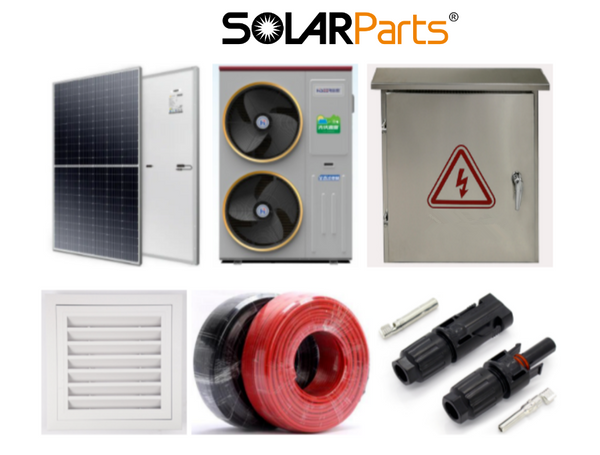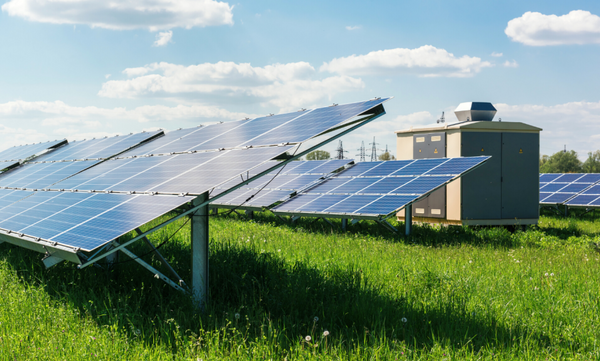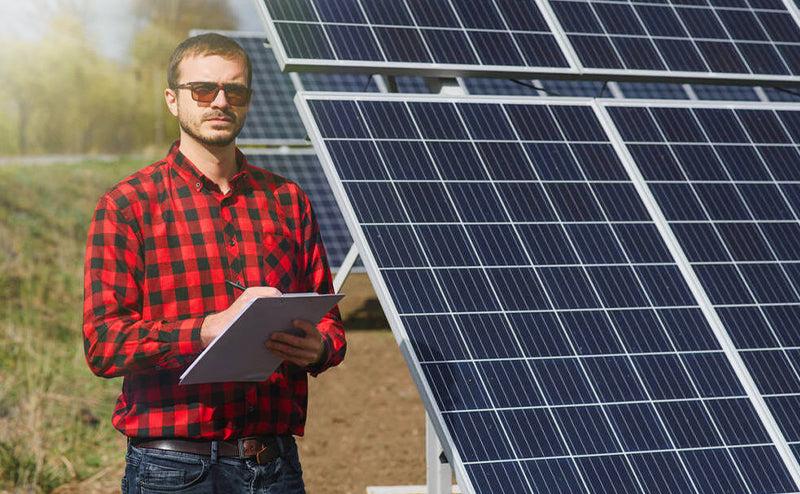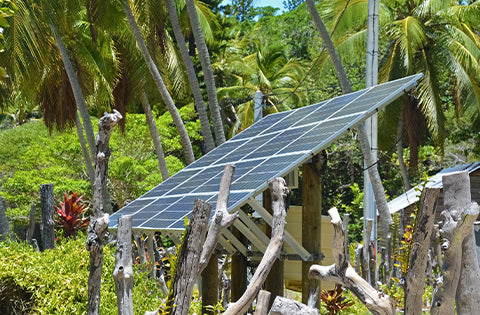Solar heat pumps are the new way towards energy efficiency! Solar-supported heat pumps are best for single-family homes. Besides, this is also one of the best investments you can have. Let’s see more specifications of solar heat pump units below.
How does it work?
During the day, the solar heater is powered mostly by solar energy, with just tiny quantities of power absorbed from the sunlight. These heat pumps can be used for many hours and they further eliminate the need for batteries.
It is more suitable for single families because the need for centralized or individualized thermal integration in multi-family residential buildings may reduce the convenience. This is not an off-grid system, but it may run at half speed without an AC connection during the day, or at full speed if connected to extra solar panels.
Heat pumps require electricity to operate, and since electricity is a renewable resource, the question of whether a solar panel can power a heat pump arises. Solar panels can generate enough electricity to run your entire home’s heat pump. Solar panels and heat pumps complement each other effectively, lowering your overall electricity bills.
What Is the Maximum Power a Solar Panel Can Produce?
Solar panels’ efficiency has grown considerably throughout the previous few decades. Solar panels were able to regenerate roughly 6% of solar energy to electricity in the 1950s. But by 2020, the efficiency of solar panels increased to 18.7 percent. Furthermore, some high-end solar panels can increase this number to 25%.
A solar panel can technically power almost any gadget in your home. Your washing machine, refrigerator, oven, television, and other appliances, all can be powered by a solar panel. But, perhaps most importantly, it can run your heat pump more effectively.
The amount of power generated by a solar panel is determined by three key elements.
- The solar panel’s dimensionsand sizing
- Solar cell efficiency: Which is a measure of how effective the cells are in converting sunlight into electricity.
- The quantity of light available in your area (peak sun hours).
The average amount of sunlight is likely the most crucial aspect. Even though you may receive 8 to 9 hours of total sunlight during the daytime, this does not necessarily equate to 8 hours of peak daylight, which can be more restricted to 4 or 5.
Each solar system is tailored to the demands of the individual household. An in-depth examination should always be performed by skilled professionals, with the goal of determining how much electricity you will require. Moreover, the electrical requirements of a heat pump depend on the type of system.
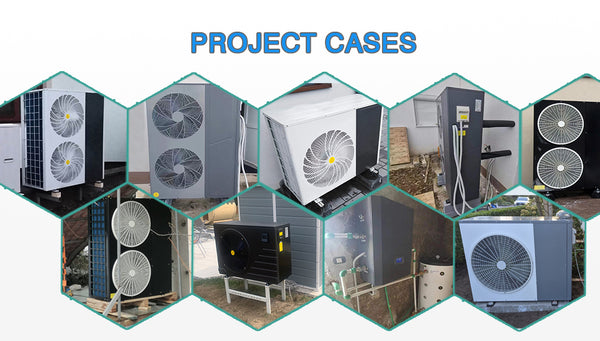
Which heat pumps work better with solar panels?
A solar panel system combined with a heat pump (air or ground-source) can provide appropriate heating for your home while also minimizing your energy expenditures. You can use a solar panel system along with an air-source heat pump.
But it works best with a ground-source heat pump if we do a comparison. Usually, when one system’s efficiency yield is at its lowest, the other is at its highest. So you can use either both or any one unit mentioned above, as required. In terms of cooling and heating, these two systems offer the most versatility.
A mini-split heat pump design is also good and it allows you to direct solar heat to the corners and remote areas; all while avoiding the high expenses and maintenance difficulties associated with solar thermal heating.
Advantages of solar heat pumps
Solar-assisted heat pumps have environmental advantages. The most beneficial aspect of establishing a hot water heat pump system is that it generates environmentally friendly gas. This technology is considered superior to normal electricity in terms of lowering energy use. It further aids in the restriction of harmful gases such as CO2, SO2, and NO2.
One of the most important benefits of solar-powered heat pumps is that they are suitable for both cooling and heating using natural resources. As a result, you can effortlessly use a solar-assisted heat pump all year long. Furthermore, they will work much better during summer, and provide sufficient cooling results.
Disadvantages of solar heat pumps
The biggest downside to combining a solar panel system and a heat pump together is the price. The high installation costs are usually what will discourage many homeowners. Often the high initial costs will make the potential payoff not really worth it.
In many cases, you can get the best return on investment by adding more desirable insulation in your home. This is better rather than modifying or upgrading your heating pump and solar system. Moreover, your nearby Certified Energy Advisors can make these assessments for you at a low cost.
The amount of sunlight you receive in your location is also very important for solar units. Therefore, if you live in a place with a lesser amount of sun rays all year long, it can be a bit troublesome.
To learn more about photovoltaic power generation, please follow SOLARPARTS official website:
Twitter: Solarparts Instagram: Solarparts
Tumblr: Solarparts Pinterest: Solarparts
Facebook: Shenzhen Solarparts Inc
Email address: Philip@isolarparts.com
Homepage: www.isolarparts.com

